Hadoop-32 ZooKeeper 分布式锁问题 分布式锁Java实现 附带案例和实现思路代码
创始人
2025-01-10 02:08:43
0次
章节内容
上节我们完成了:
- ZooKeeper的Leader选举机制
- ZooKeeper的选举过程
- ZooKeeper的ZAB协议
背景介绍
这里是三台公网云服务器,每台 2C4G,搭建一个Hadoop的学习环境,供我学习。
之前已经在 VM 虚拟机上搭建过一次,但是没留下笔记,这次趁着前几天薅羊毛的3台机器,赶紧尝试在公网上搭建体验一下。
- 2C4G 编号 h121
- 2C4G 编号 h122
- 2C2G 编号 h123
分布式锁
出现问题1(单机器)
- 假设 Redis 里面的某个商品库存为1,此时两个用户同时下单,其中一个下单请求执行到第3步,更新数据库的库存为0,但是第4步还没执行。
- 而另外一个用户下单执行到了第二步,发现库存还是1,就会继续执行第3步。
- 但是此时库存已经为0了,所以数据库没有限制,此时会出现超卖的问题。
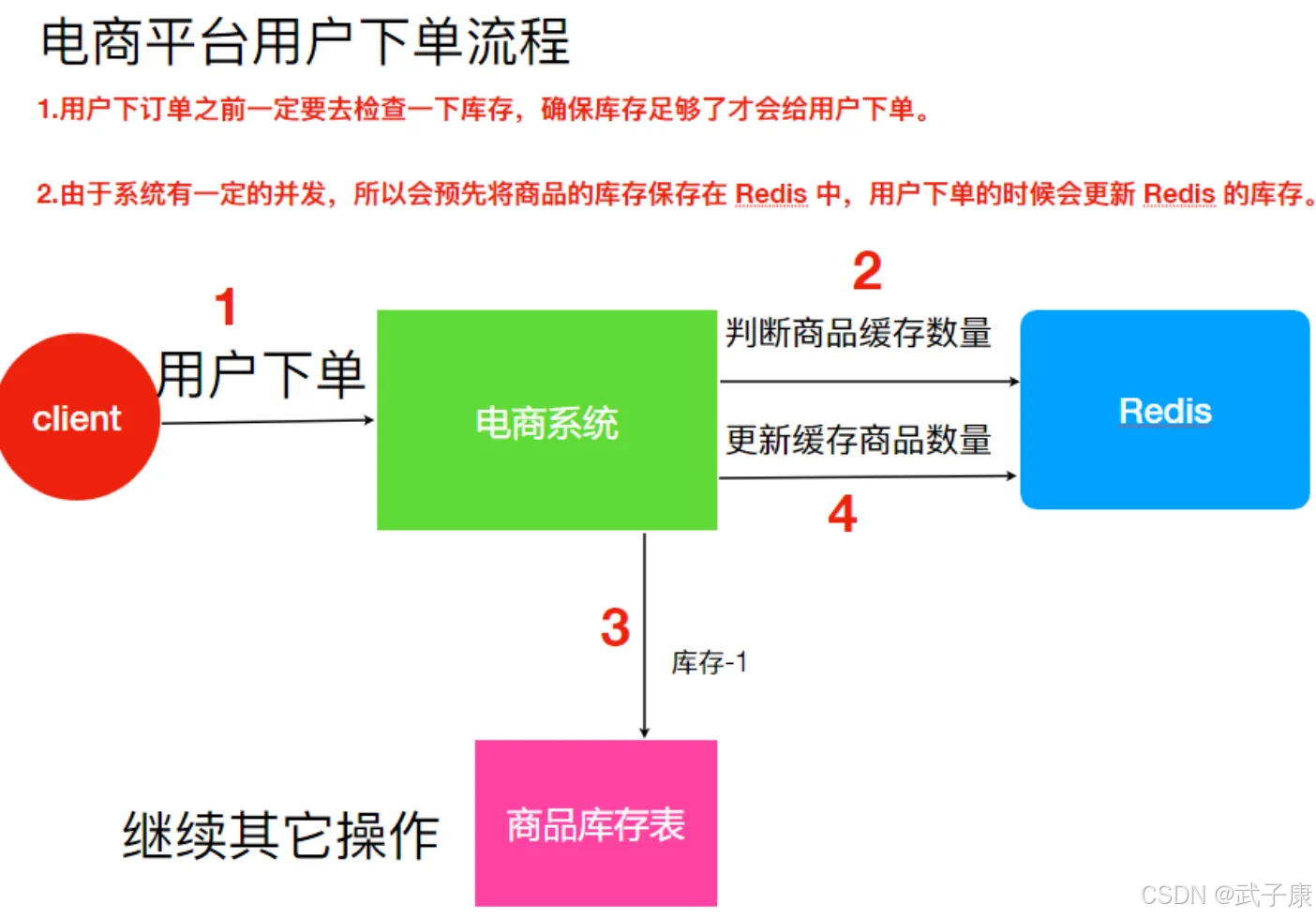
解决方案1
- 用锁把2、3、4步锁住,让他们执行完后,另一个线程才能够继续执行。
- 但是由于业务发展迅速,原来的单机已经不能够满足,此时增加一台机器后,会出现更严重的问题。
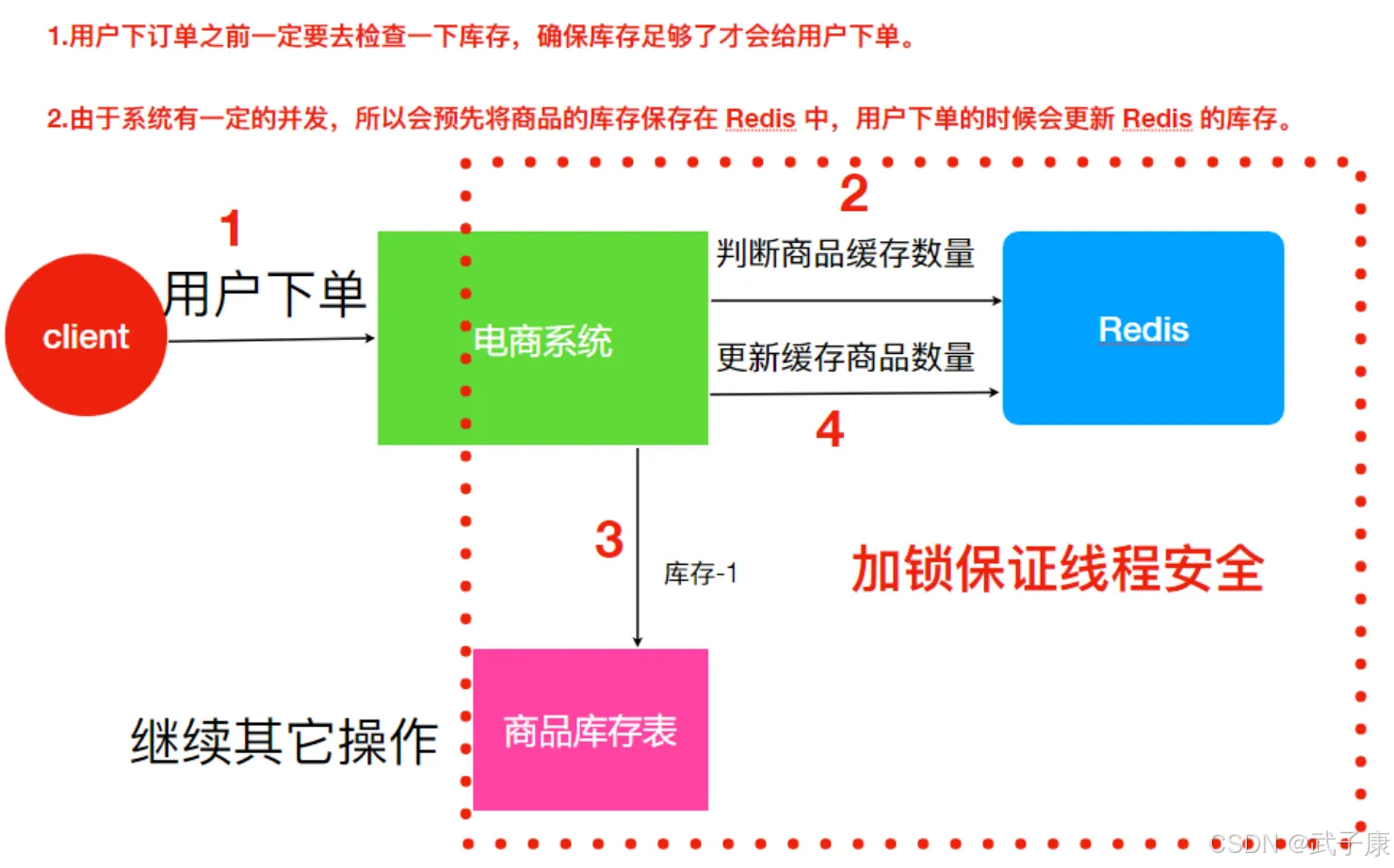
出现问题2(多机器)
假设有两个订单同时执行,分别有两个机器执行,那么这两个请求就是可以同时执行了,这样就依然出现了超卖的问题。
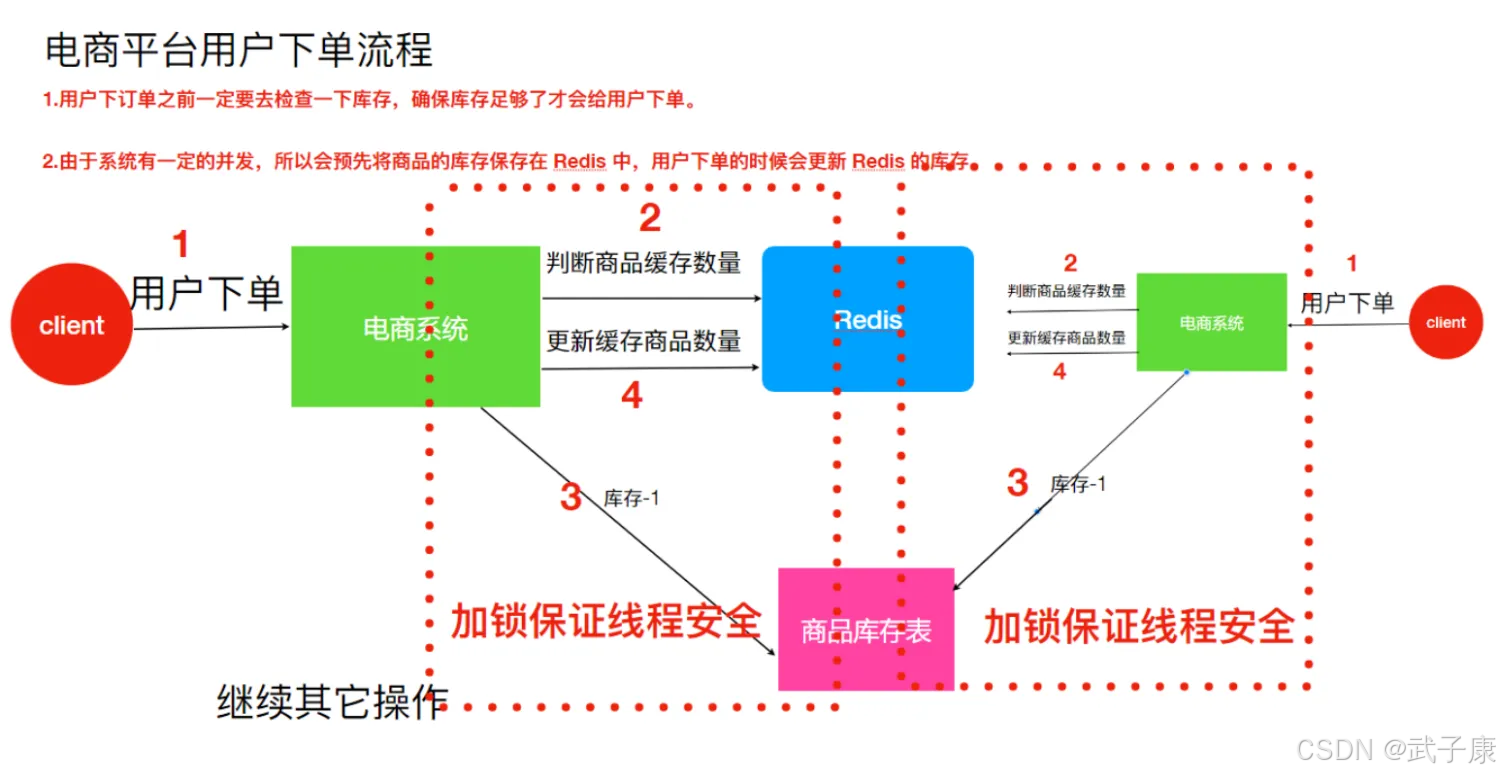
解决方案2
我们需要使用分布式锁来解决上面出现的问题。
分布式锁的作用就是在整个系统中提供一个全局的、唯一的锁,在分布式系统中每个系统进行相关的操作时都需要获取到该锁,才能够执行相应的操作。
ZK 分布式锁
实现思路
- 锁就是ZK指定目录下序号最小的临时节点,多个系统的多个线程都要在此目录下创建临时顺序节点,因为ZK会保证节点的顺序性,所以可以利用节点的顺序性进行锁判断。
- 每个线程都是先创建临时顺序节点,然后获取当前目录下最小的节点(序号),判断最小节点是不是当前节点,如果是那么获取锁成功,如果不是则获取锁失败。
- 获取锁失败的线程获取当前节点上一个临时顺序节点,并对此节点进行监听,当该节点删除时,代表释放了锁。
流程图
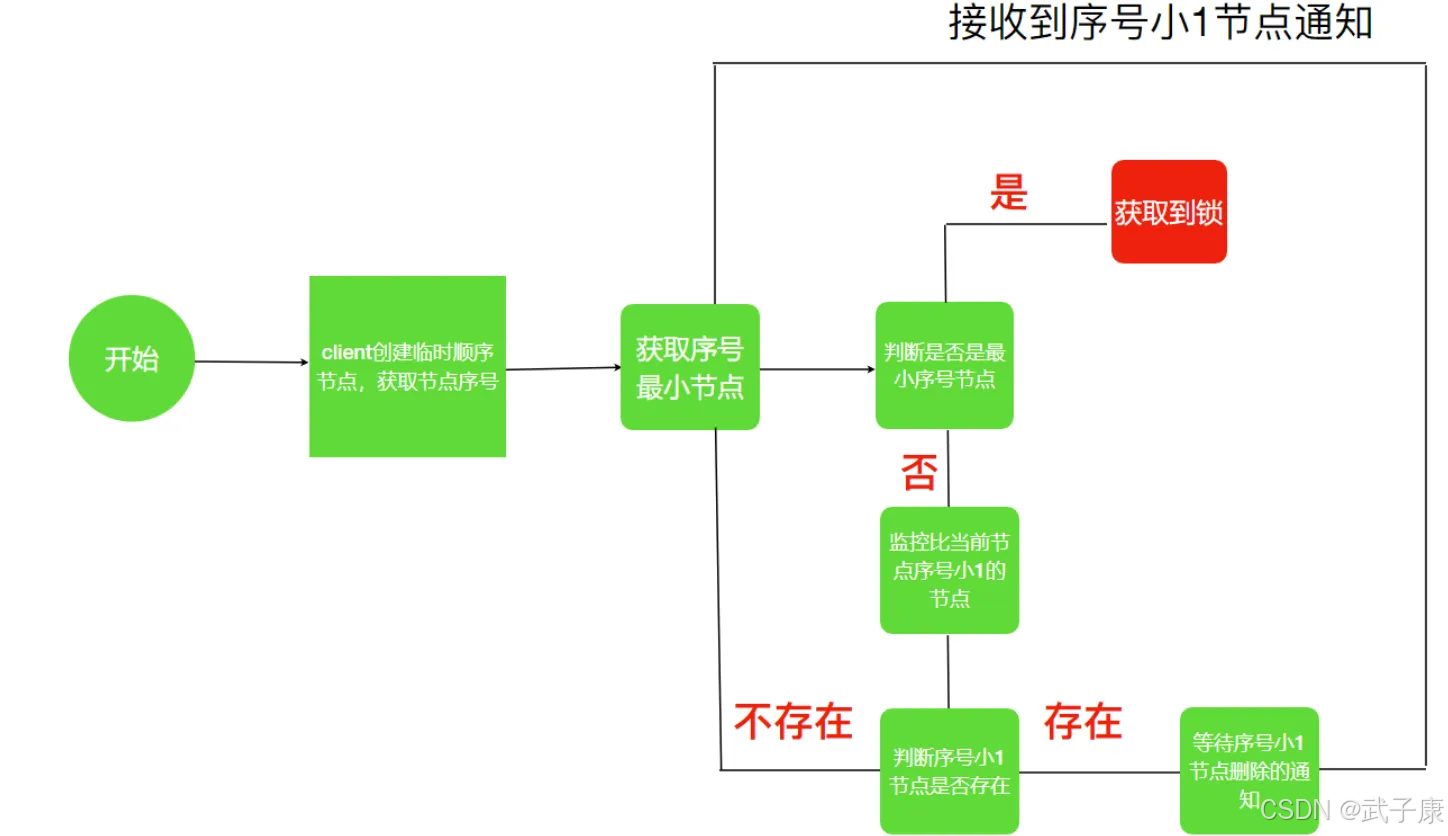
编写代码
LockTest
package icu.wzk.zk.demo02; public class LockTest { public static void main(String[] args) { for (int i = 0; i < 10; i ++) { // 启动10个 new Thread(new LockRunnable()).start(); } } static class LockRunnable implements Runnable { @Override public void run() { final ClientTest clientTest = new ClientTest(); clientTest.getLock(); try { Thread.sleep(2000); } catch (InterruptedException e) { e.printStackTrace(); } clientTest.deleteLock(); } } } ClientTest
package icu.wzk.zk.demo02; import org.I0Itec.zkclient.IZkDataListener; import org.I0Itec.zkclient.ZkClient; import java.util.Collections; import java.util.List; import java.util.concurrent.CountDownLatch; public class ClientTest { private ZkClient zkClient = new ZkClient("h121.wzk.icu:2181,h122.wzk.icu:2181,h123.wzk.icu:2181"); String beforeNodePath; String currentNodePath; CountDownLatch countDownLatch = null; public ClientTest() { synchronized (ClientTest.class) { if (!zkClient.exists("/lock")) { zkClient.createPersistent("/lock"); } } } public boolean tryGetLock() { if (null == currentNodePath || currentNodePath.isEmpty()) { currentNodePath = zkClient.createEphemeralSequential("/lock/", "lock"); } final List childs = zkClient.getChildren("/lock"); Collections.sort(childs); final String minNode = childs.get(0); if (currentNodePath.equals("/lock/" + minNode)) { return true; } else { final int i = Collections.binarySearch(childs, currentNodePath.substring("/lock/".length())); String lastNodeChild = childs.get(i - 1); beforeNodePath = "/lock/" + lastNodeChild; } return false; } public void waitForLock() { final IZkDataListener iZkDataListener = new IZkDataListener() { @Override public void handleDataChange(String dataPath, Object data) throws Exception { // } @Override public void handleDataDeleted(String dataPath) throws Exception { countDownLatch.countDown(); } }; zkClient.subscribeDataChanges(beforeNodePath, iZkDataListener); if (zkClient.exists(beforeNodePath)) { countDownLatch = new CountDownLatch(1); try { countDownLatch.await(); } catch (InterruptedException e) { e.printStackTrace(); } } zkClient.unsubscribeDataChanges(beforeNodePath, iZkDataListener); } public void deleteLock() { if (zkClient != null) { zkClient.delete(currentNodePath); zkClient.close(); } } public void getLock() { final String threadName = Thread.currentThread().getName(); if (tryGetLock()) { System.out.println(threadName + ": 获取到了锁!"); } else { System.out.println(threadName + ": 没有获取到锁!"); waitForLock(); // 自己调用自己 getLock(); } } } 运行结果
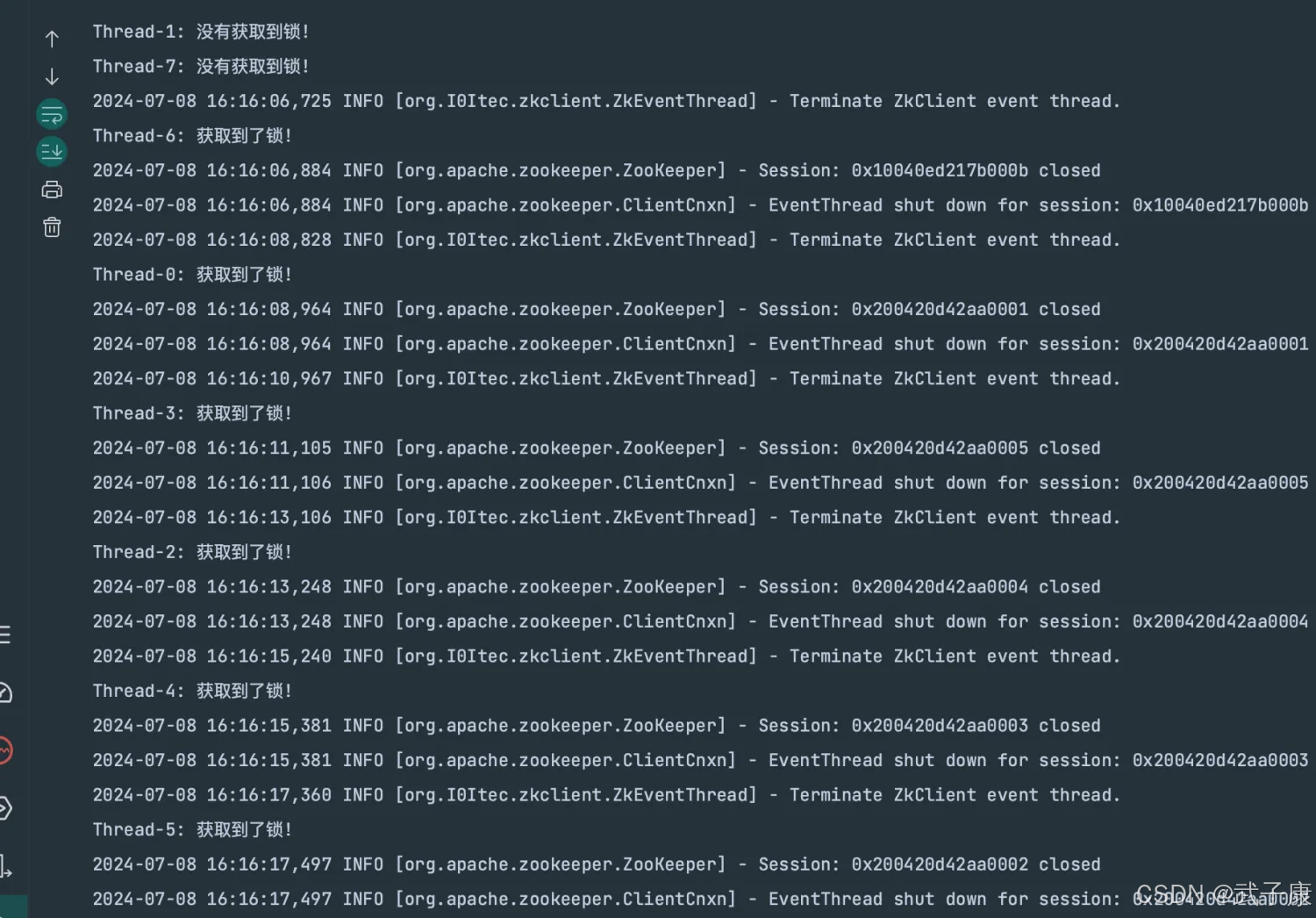
相关内容
热门资讯
七分钟方针!微乐小程序插件免费...
七分钟方针!微乐小程序插件免费(透视)详细开挂辅助插件(有挂秘籍);无需打开直接搜索加(薇:1367...
透明神器!wepoker国外版...
透明神器!wepoker国外版透视(透视)先前有开挂辅助神器(真的有挂)1、下载安装好wepoker...
科普!微乐自建房辅助工具202...
您好:微乐自建房辅助工具2025在哪这款游戏可以开挂的,确实是有挂的,很多玩家在这款游戏中打牌都会发...
第7刹那晓得!闲聚鱼虾蟹软件脚...
第7刹那晓得!闲聚鱼虾蟹软件脚本(透视)原本有开挂辅助挂(有挂方式);无需打开直接搜索加薇13670...
第5分钟手册!新上游拼十辅助(...
第5分钟手册!新上游拼十辅助(透视)详细开挂辅助神器(有挂细节);无需打开直接搜索加(薇:13670...
透明教程!pokerworld...
您好:pokerworld辅助器这款游戏可以开挂的,确实是有挂的,很多玩家在这款游戏中打牌都会发现很...
盘点一款!微信小程序微乐辅助器...
盘点一款!微信小程序微乐辅助器app,新西游脚本辅助,辅助教程(证实有挂);无需打开直接搜索加(薇:...
七刹那掌握!大唐麻雀辅助器怎么...
七刹那掌握!大唐麻雀辅助器怎么设置(透视)原先有开挂辅助脚本(有挂透视)1、下载安装好大唐麻雀辅助器...
第9分钟积累!微乐智能辅助真的...
第9分钟积累!微乐智能辅助真的假的(透视)详细开挂辅助插件(竟然有挂);无需打开直接搜索加薇1367...
透视脚本!wepoker祈福有...
透视脚本!wepoker祈福有用吗(透视)原先有开挂辅助插件(确实有挂)1、下载安装好wepoker...
